Little footprints leave a small carbon footprint behind: LTT mobility in Sweden - Molnlycke
FIRST MEETING DAY, 14. 3. 2022, 9am - 16pm (ETC)
Participants of the meeting are:
Latvia: Martins, Dace
Bulgaria: Vasilka, Mariya, Blagovesta, Tsvetlina
Spain: Julia, Mercedes
Sweden: Johanna, Sofia, Cecilia, Carina
Slovenia: Anja, Katja, Daniela
Introduction
We met up at the bus station in Molnlycke and walked to the retirement home, where we started the meeting. Johanna, Swedish coordinator, presented today's timeline and distributed the materials (timeline…). We played the first ice-breaker game, where everybody picked an animal and explained why we picked it. Second game was recognizing Swedish music artists and the name of the songs that were played on the speaker. We continued with the third game, which helped us remember participants' names. We walked around the room and introduced ourselves to another participant. Then we took his/her name and continued to process until we met a person with our own name.
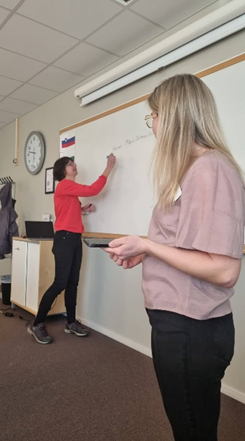
We had some Swedish fika (coffee and carrot cake) in a caffe later on.
After the break we did some project planning. Anja (Slovenian coordinator) explained the instructions for the workshop. We made national teams and each of the teams had a task to make two posters with visual guidelines for different sustainability practices we did in the project. Today we wrote down the ideas, what should be included on each poster. Posters should be designed in a way that children (preschool and elementary school) could understand the meaning of each practice and how to implement it.

Slovenia:
1. Criteria for sustainable toys and materials
2. Composting
Spain:
1. growing our own food/ school gardens
2. eating ecological/local food
Latvia
1. outdoor learning,
2. Reduce/reuse/repair
Sweden:
1. Sustainable relationships
We walked to school where Carina, the headmistress, greeted us. Johanna divided the participants in teams, according to the country. Each team was guided throughout the school and school grounds by three children from the fifth grade. They showed us different parts of the school (classrooms, cafeteria, playground, teachers lounge, common rooms, playground and the woods. They explained the rules, some of the activities, artwork on the walls, their favorite games and places, organization of the school and answered all of the questions. We observed how their break outside of the school was organized. We continued with a school lunch in the cafeteria and coffee in the teachers lounge.


Next on the agenda was the job shadowing of some lessons in mixed national teams. One group observed a lesson where 5th grade students draw comics about seeds and vegetables. They had to come up with a story about a vegetable and include a process of seed to product in it. Children could work individually or in pairs. Lesson was partly taught in English. Students could use their laptops to search for the information.
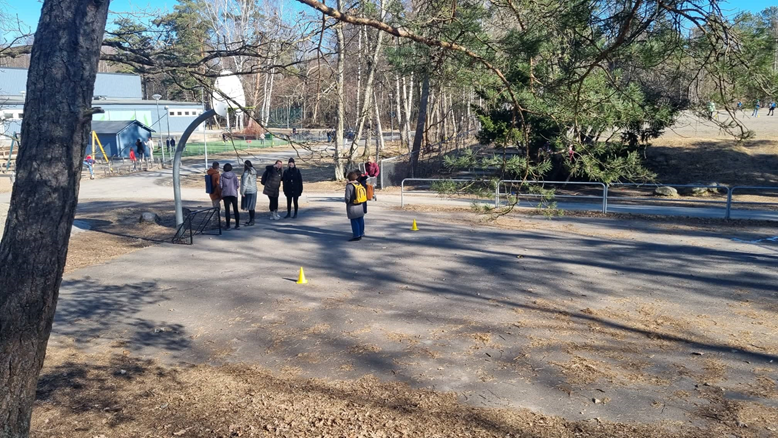
Other two groups visited leisure time activities with 2. and 3. class year olds. They did some outdoor art - painting on canvases, and played different games with waste materials (bottles with painted water, sticks). They also did movement games. At the same time teachers were preparing hotdogs on open fire. We were able to explore one of the classrooms, with special equipment for a student with a vision impairment. One of the teachers explained how he is included in the school work and showed us a computer that he uses for school work. Third group of participants went to the forest where they also made hotdogs and popcorn on an open fire. 7-year old children were using knives and playing freely in the forest.



We ended the day in the teachers lounge where Johanna shared some more organizational details. All the participants met in the evening for an informal dinner.
SECOND MEETING DAY, 15. 3. 2022, 9am - 16pm (ETC)
In the morning we met in Gothenburg city center. A local guide took us on a tour around the fortified Gothenburg with a visit to the underground parts of Gothenburg. We found out that from its founding in 1600 to the 19th century, Gothenburg was one of Europe's best fortified cities. We were able to see old city walls, shelters and storerooms for the soldiers and gunpowder, learn a lot about the history of the city and also enjoyed some nice views.
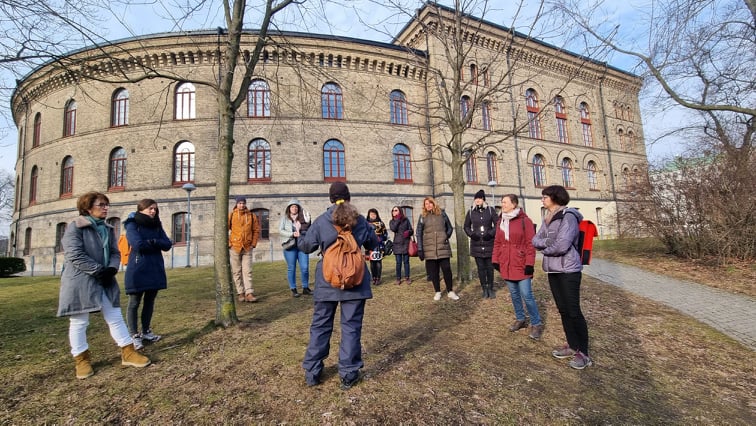
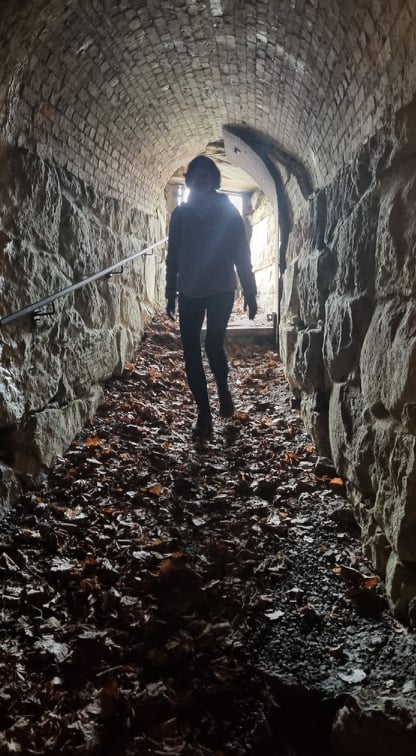

After the tour, Johanna took us to the Haga district where we took a stroll around old neighborhoods and bought some souvenirs.
We ate lunch at Molnlycke gymnasiet.
Afternoon was dedicated to the project activities - we continued the work on sustainable guidelines posters. Every national group presented the ideas, to which we added the suggestions from other teams. They will take drafts of posters back to their countries and finish them using online tools.
We made a group decision about the posters:
-
They should be made in Canva application. It should be free for the teachers.
-
Posters should contain some graphics/pictures and some text. When using graphics you must make sure you have the right to use it (copyright). You can also draw your own illustrations, scan it and use it in Canva.
-
There should be some simplified theory on the poster. For ex. composting is a process…
-
Every poster needs to contain a bracket that explains how we can implement this practice in the kindergarten/school.
-
Poster should be made in a way that children, students, teachers and parents will understand it.
-
Focus on guidelines (How to implement them, what are they, why are they ecological/sustainable/good for the environment) more than the specific activities (which you can of course add as examples)!
-
Poster should be made in English in pdf form. When the coordinator will ge all the posters she will send it to all the posters. Each partner is responsible for translating posters into its own language. We need to distribute posters to our local schools.
-
Deadline will be decided by the coordinators.




After the workshop we did a short evaluation and made plans for the next day. We had dinner in the school with all the teachers. Johanna and Anja thanked all the teachers and staff for hosting us. Swedish teachers performed a traditional song and Blaga from Bulgarian team played a song on a piano.
THIRD MEETING DAY, 16. 3. 2022, 8.30am - 16pm (ETC)
In the morning most participants gathered at the Molnlycke bus station where Cecilia from the Swedish team greeted us. We started the day in an empty common room that children use in their free time and teachers for meetings. Johanna explained to us how they do their monthly meetings with all the classes in the school. Because of the Covid situation they don’t do live meetings anymore, but they are performed using Microsoft Teams app. Johanna greeted the students and explained to them about our visit. With the help of a music teacher she sang a few songs, including their school song they wrote themselves. Participants greeted the students and introduced themselves. All together we sang a birthday song for Blaga, who was celebrating it that day.


Monthly meetings are a regular occurance in Furuhall school as a way to stay connected. Children learn about what is happening at school, can present their work, celebrate birthdays with a song, there is also a space for Student Council happening.
After the Swedish fika, participants divided into 3 groups and visited lessons in 2 preschool classes and 2. grade. In one of the preschool classes participants could observe how a child with special needs (wheelchair) is included in the school work. They were learning about butterflies and making them out of paper (art class). Teachers explained the organization of the classes, showed us different materials and spaces they use in their work. They also answered additional questions. In the second preschool class students did Swedish and math lessons. The class was divided in 2 groups: each group was with one of the teachers. In language class they practiced writing letters and were writing short stories about a witch. At math class they learned about numbers: the teacher read a story book about numbers and children counted items to match the number in the story. We also learned about some other activities they do. In class 2 they learned about megalodon using the method called Grej of the day. Grej loosely translates in English as one thing a day. Teacher gave the children some clues, from which they guessed they were going to learn about megalodon. Teacher prepared a PPT presentation with some facts that children copied into their notebooks.



Following the lunch, Johanna explained how the Swedish system of grading children works. She showed us a test version of the app and explained how parents are informed about the progress of their child. They are evaluating all children but give grades only to children from class 6 and up.
We did a seed exchange, where all partners received 5 bags of seeds from each country. We dedicated 15 minutes to final evaluation. Participants answered 5 questions regarding mobility.


-
Main impressions of visiting Furuhall school:
Latvia: Long outside break, structured activities during the break, outside space, no fences, books that are everywhere, word of the day activity, inclusion
Spain: No fences, advantage of natural resources, spaces, autonomy of the students, serving of food themselves
Bulgaria: Relaxed and friendly atmosphere, relaxed atmosphere in the classrooms, in their country outside activities and learning about nature is not that important
Slovenia: break room for the staff (sofa, massage chair), relationships among children, teachers, eating lunch with the children, knowledge of english
-
What did we learn:
Latvia: Making popcorn on the fire, sweet days on Saturdays
Spain: Importance about relationships between students and teachers, support of parents
Bulgaria: children have choices and freedom, less documentation, more freedom with planning lessons
Slovenia: Games in the playground, ideas how to use digital devices in preschool, how to make safe fire outdoors, knowledge about different educational systems
-
What should we change till next meeting:
Latvia: More outside activities. More knowledge about culture.
Spain: Nothing
Bulgaria: Organization- all participants at the same hotel, so planning would be easier
Slovenia: Good balance between work and pleasure
-
What we can implement in your school
Latvia: Schedule, shelves with materials
Spain: Furniture in the classrooms, to take advantage of ‘dead’ spaces, more time spending outside, fun activities among teachers
Bulgaria: Splitting groups to have more relaxed atmosphere, more outdoor activities
Slovenia: dividing groups, monthly Erasmus meetings, wish week for food, Erasmus monthly meeting with children, more time outside
We also went through activities for the Sustainable food theme that need to be done until May/June.
Activities for the next project theme:
-
Collecting data about standards and norms for school nutrition (school kitchen, how many meals, what kind of meals, percentage of organic and local food ...).
-
Making school garden (herb gardens, raised beds, pot planting ...) in every school
-
Visit a local farm or produce supplier where the school kitchen gets its produce - in virtual or physical form
-
Making school seed banks.
-
Making a meal from produce from the school garden and recipe exchange (1 recipe from every school).
Additional activities are written in Jamboard:
Link to the jamboard:
https://jamboard.google.com/d/1Dhd5dwwo_S7V5Xme71AweLcLOf-Dz0MYp76z9cDDNaU/edit?usp=sharing
We agreed that we will also do additional activity: competition about cutting food waste. How it will be done, every school decides for themselves (competition within class, competition between classes, competition between students…). We will encourage children to be mindful of wasting food, and teach them about the importance of local and organic food.
We also agreed that each coordinator will post a short reflection of the meeting on E-twinning. Participants of the meeting must report their thoughts of reflection to the coordinators.
Johanna gave everybody certificates of attendance. Before departure we visited the school gym and took a final group photo.

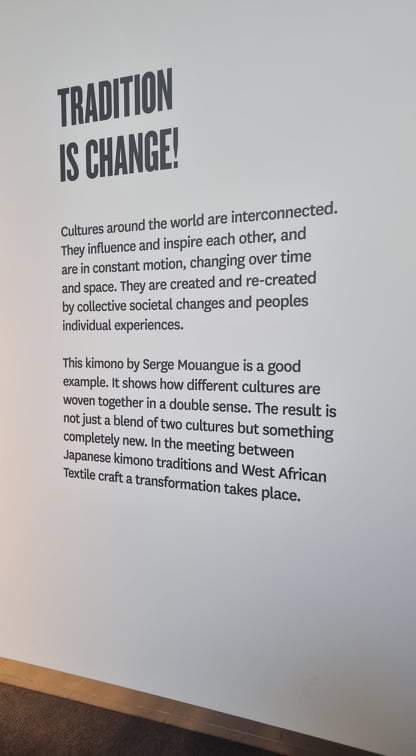
The last activity was a visit to the World culture museum in Gothenburg, which is connected to the theme of sustainable relationships. We gave special attention to a children's exposition called Together that focuses on similarities between cultures.